The true colours of water - every drop counts
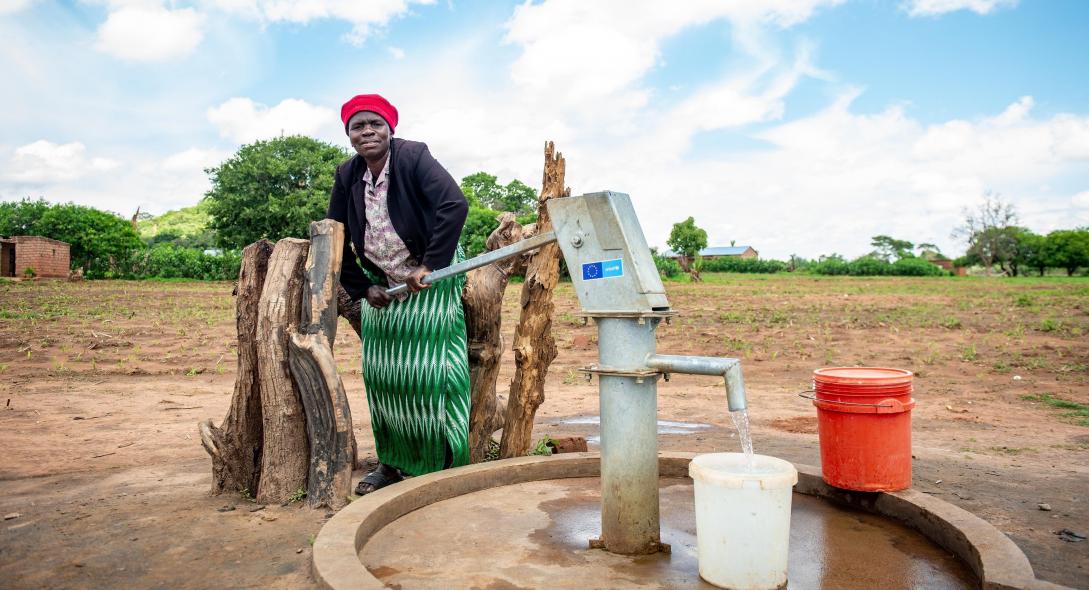
©UNICEF/Zambia/2020/Siakachoma
“Goodbye to early morning walks of 2km away to draw water from the streams before sunrise. We now can draw water at any time of the day” - Christine Maambo, farmer.
The value of water is about much more than its price – water has enormous and complex value for our households, food, culture, health, education, economics and the integrity of our natural environment.
To mark this day the EU High Representative Josep Borrell together with Commissioner Virginijus Sinkevičius, issued a EU statement saying "On World Water Day 2021, we celebrate all of the different ways in which water benefits our lives. We resolve to value water properly and safeguard it effectively for everyone. This year’s theme focuses on the ‘value of water’. We should not forget that access to drinking water and sanitation are basic human needs and rights, and are fundamental for human dignity. At the same time, water is a shared resource, a critical ecosystem, and its use underpins various sectors of the economy. Yet, access to sufficient, safe, acceptable, physically accessible and affordable water remains a challenge in many parts of the world."
https://twitter.com/eu_eeas/status/1373917369404436498
World Water Day celebrates water and raises awareness of the global water crisis, and a core focus of marking this day is to support the achievement of the United Nations Global Goals, notably Sustainable Development Goal (SDG) 6: water and sanitation for all by 2030. In their statement, the EU High Representative Borrell and Commissioner Sinkevičius, reiterate the EU's commitment to achieve this goal.
The High Representative and the Commissioner explain how in some countries and regions, lack of access to water can affect peace, and security and increase inequalities. Driven by population growth, ecosystem loss and unsustainable water use, water scarcity already affects a quarter of the world’s population. And due to climate change, many regions in the world already face more frequent, severe, and longer lasting extreme weather events, water cycle and temperature changes, or sea level rise putting our ecosystems under additional stress. The European Green Deal and ambitious climate neutrality target address the water stress which is increasing in Europe as well.
Borrell and Sinkevičius also express concerns about the impact of the COVID-19 pandemic which has caused a severe health and economic crisis that is affecting progress in achieving the 2030 Agenda for Sustainable Development. Access to clean water and sanitation remains the best protection to reduce the spread of infections and save lives.
Based on its long experience of transboundary water management, the EU strongly encourages and where possible directly supports increased cooperation and transparency in water governance at all levels. "Just this month we are inaugurating in Djibouti a desalination plant powered with renewable energies and a wastewater treatment plant in the West Bank equipped with collection and irrigation networks to re-use water."
https://twitter.com/UEaDjibouti/status/1371037700766248961
New water boreholes, more time for school
In different regions women and children have acted as the vehicle for carrying water to their families, walking long distances to reach watersources.
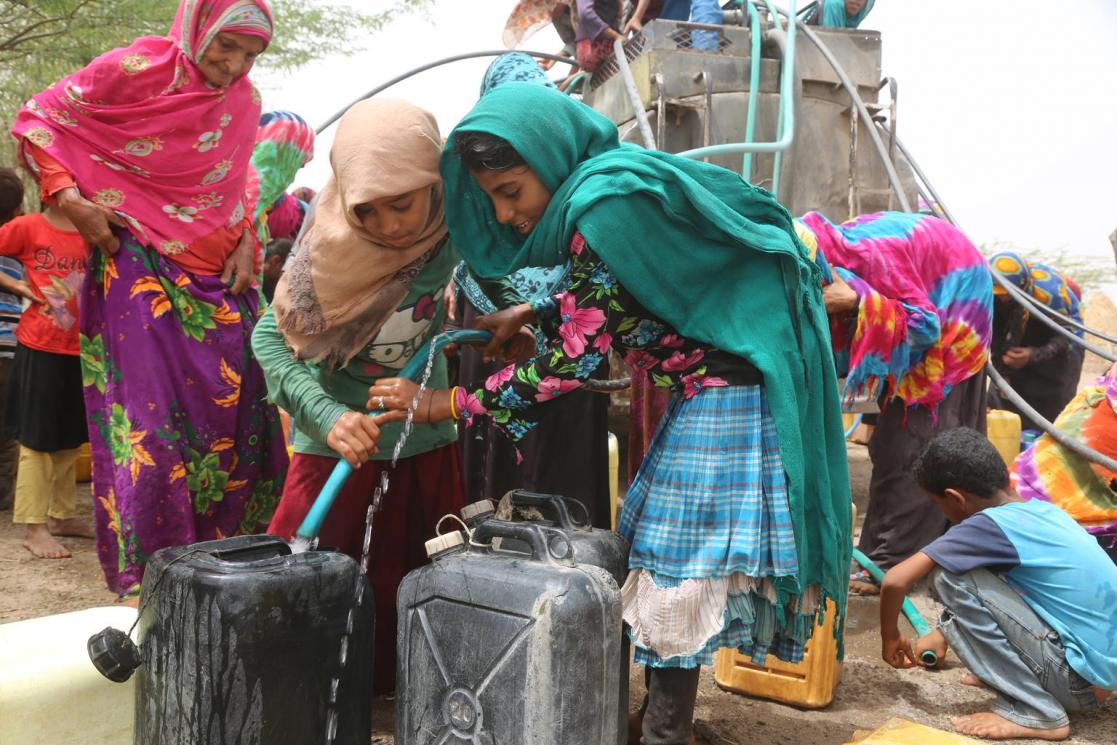
©UNICEF/Yemen/2018/Ayyashi - Women and children filling jerrycans with water in Bajel district of Hodeidah where water is scarce.
In Zambia, the European Union has allocated EUR 2 million (ZMW 42.1 million) to UNICEF to help address the effects of the recent drought on children and to support humanitarian work on the COVID-19 response in the Southern and Western provinces. Five new boreholes have been introduced in Zambia’s Mazabuka District.
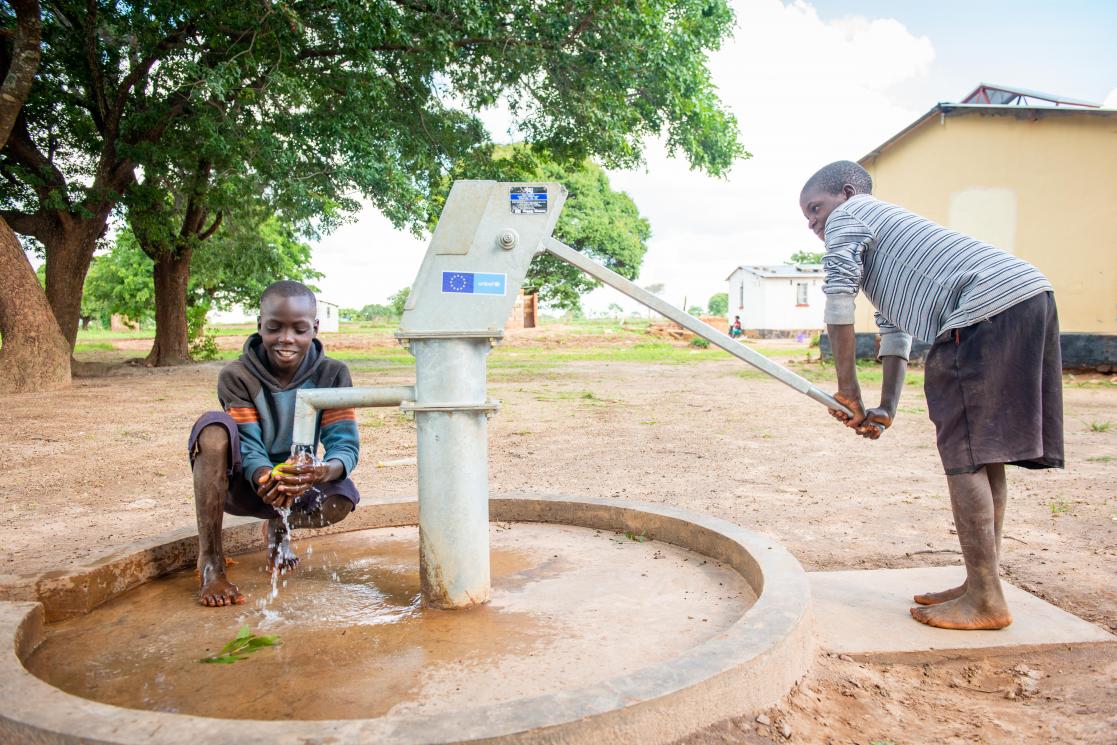
©UNICEF/Zambia/2020/Siakachoma - Local boys washing fruit at newly constructed centrally located borehole providing clean and safe water
“To find enough water we used schoolchildren. When we reached the water point we would find long queues. Some children would end up missing school,” recounts Christine Maambo, a farmer from Zambia."From the time the borehole was sunk, the water challenge has reduced. We can now let our children go to school."
Watch the video:
Hand hygiene for all in schools
With the support of the EU, UNICEF managed a major operation to bring hygiene supplies and safety education materials to all 13,482 schools and 3,064 community pre-schools in Cambodia, essential for the safe re-opening of the schools.
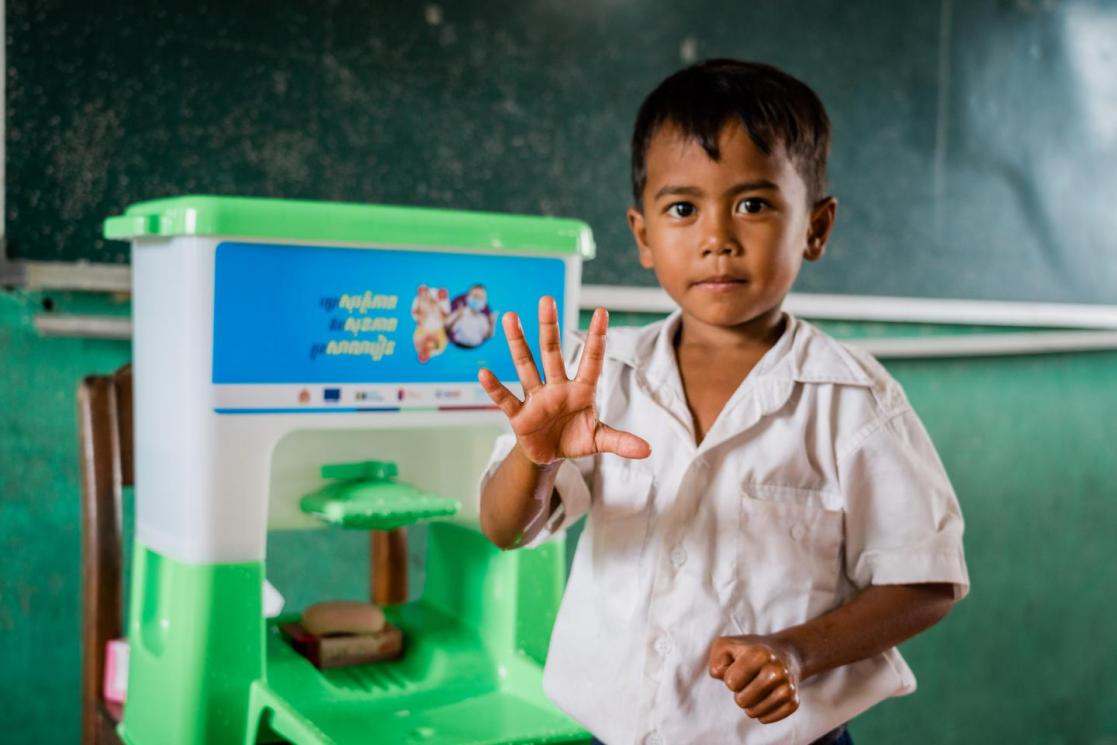
©UNICEF Cambodia/2020/Antoine Raap
Twelve-year-old Hong Mansou, was especially happy to see new handwashing facilities installed. He is a serious student who aims to become a doctor. He also lives with a grandmother who has a long-term sickness, so he has even more reasons to be cautious during the pandemic. “I am really careful,” he explains. “I try to avoid crowded places and I make sure I always wash my hands for more than 40 seconds. That will be easier now.” Read Hong's full story
---
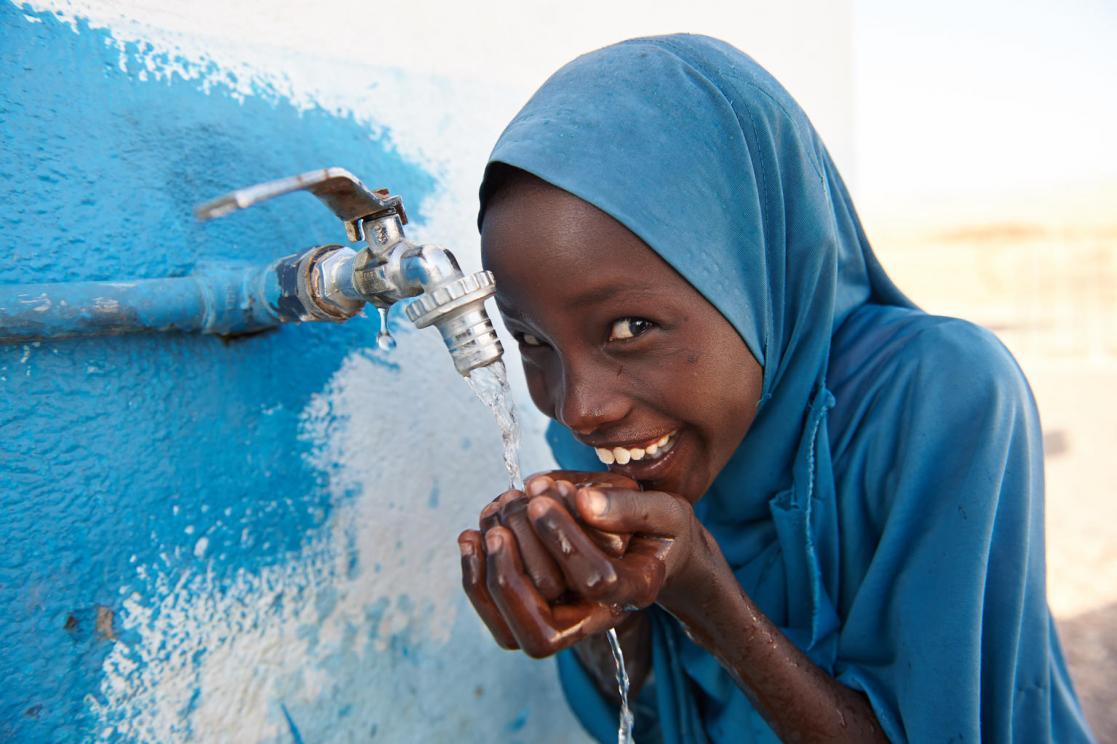
©UNICEF/Djibouti/ Shehzad Noorani - A girl drinks safe water from a tap outside a UNICEF supported school in the village of Dafo, situated 5 km from the city of Tadjourah, in the southern Djibouti.
Valuing water is key to ensure water and sanitation for all. Without a comprehensive understanding of water’s true, multidimensional value, we will be unable to safeguard this critical resource for the benefit of everyone. On World Water Day, 22 March, the UN World Water Development Report 2021 on 'Valuing Water' will be launched in the margins of a UN Celebration of World Water Day that will include a High-Level Opening Ceremony and the Presentation of the report.
Ahead of World Water Day, on 18 March, the President of the General Assembly convened a High Level meeting to promote the implementation of the water-related goals and targets of the 2030 Agenda in support of the implementation of the Decade on Water and Sustainable Development (2018-2028) and the high-level political forum on sustainable development (HLPF). Commissioner for International Partnerships, Jutta Urpilainen, delivered a video message on behalf of the EU.
https://twitter.com/EUatUN/status/1372573760017022979
The beginning of the year saw the conference 'Water and Beyond', hosted by the EU, and the Government of Slovenia, with the support of the Government of Portugal as the Presidency of the Council of the European Union. The conference aimed to deliver insights on how to strengthen trans-boundary cooperation, build broader partnerships and trigger water investments in support of the Sustainable Development Goals and the Paris Agreement.





